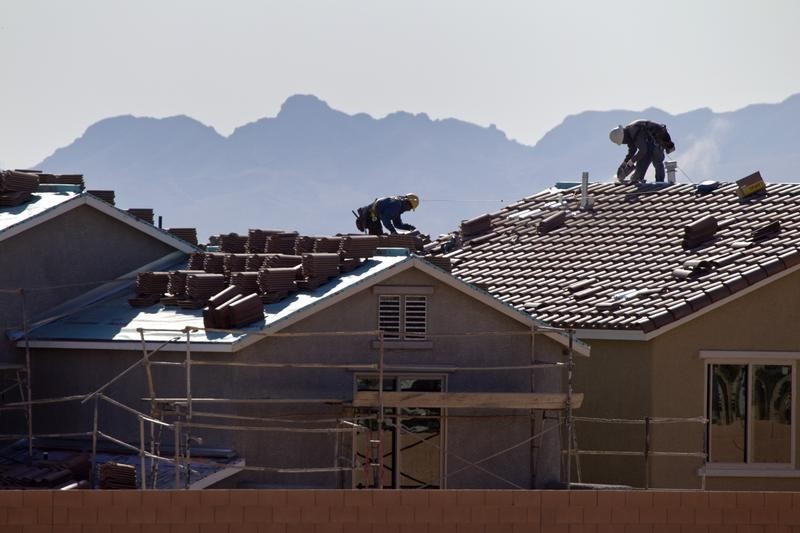By Geoffrey Smith
Investing.com -- The U.S. housing market weakened again in May, with both building permits and housing starts falling by more than expected to their lowest level since last October.
Housing starts fell 14.4% on the month to 1.549 million, while building permits fell by 7% to 1.695 million. Both numbers were markedly below consensus forecasts.
The declines were biggest in those regions where the housing market had previously been hottest, the South and West, where housing starts fell 21% and 18% on the month respectively.
"So much for all those backlogs and all cash investors builders thought they had," said Diane Swonk, chief economist with Grant Thornton, via Twitter, noting that the number of projects being canceled had leaped due to higher interest rates wrecking the calculations of many builders and prospective home-owners. The Mortgage Bankers Association's benchmark 30-year mortgage rate rose to a new 14-year high of 5.65% last week and is now at its highest since the deflation of the subprime bubble in 2008.
Elsewhere, the Labor Department also reported signs that some of the froth may also be coming off the labor market, as initial jobless claims came in at 229,000, only just below an upwardly revised figure of 232,000 for the previous week. The four-week average for initial claims, which smooths out some short-term volatility in the series, rose to its highest since March, at 218,500.
The housing and the labor market have both been highlighted by the Federal Reserve as areas of conspicuous overheating in recent months, and various officials have stressed the importance of rate hikes for bringing them down.
However, both the housing data and labor market data remain strong by any longer-term historical comparison, with housing supply, in particular, having responded rapidly during the pandemic to the big shift in demand in favor of larger properties further away from city centers. Even May's levels were more than 10% above anything seen in a single month before February 2020.
In a similar vein, the jobless claims figure conspicuously failed to tick up sharply despite a wave of layoffs announced by the technology sector over the last two weeks.
"Note that relatively few people are affected and that many never apply for jobless claims because they have 4 job interviews and a new job the week they’re laid off," Julia Pollak, chief economist with ZipRecruiter, said via Twitter.
